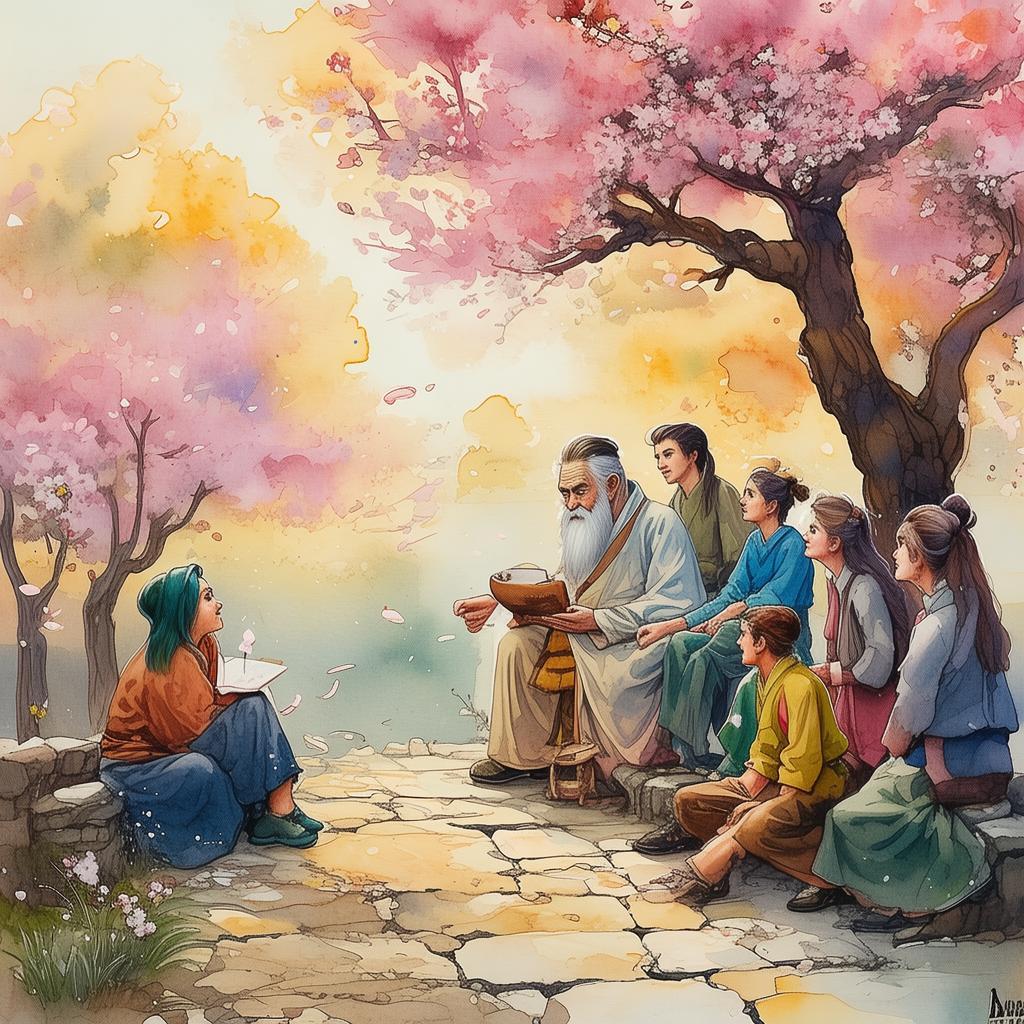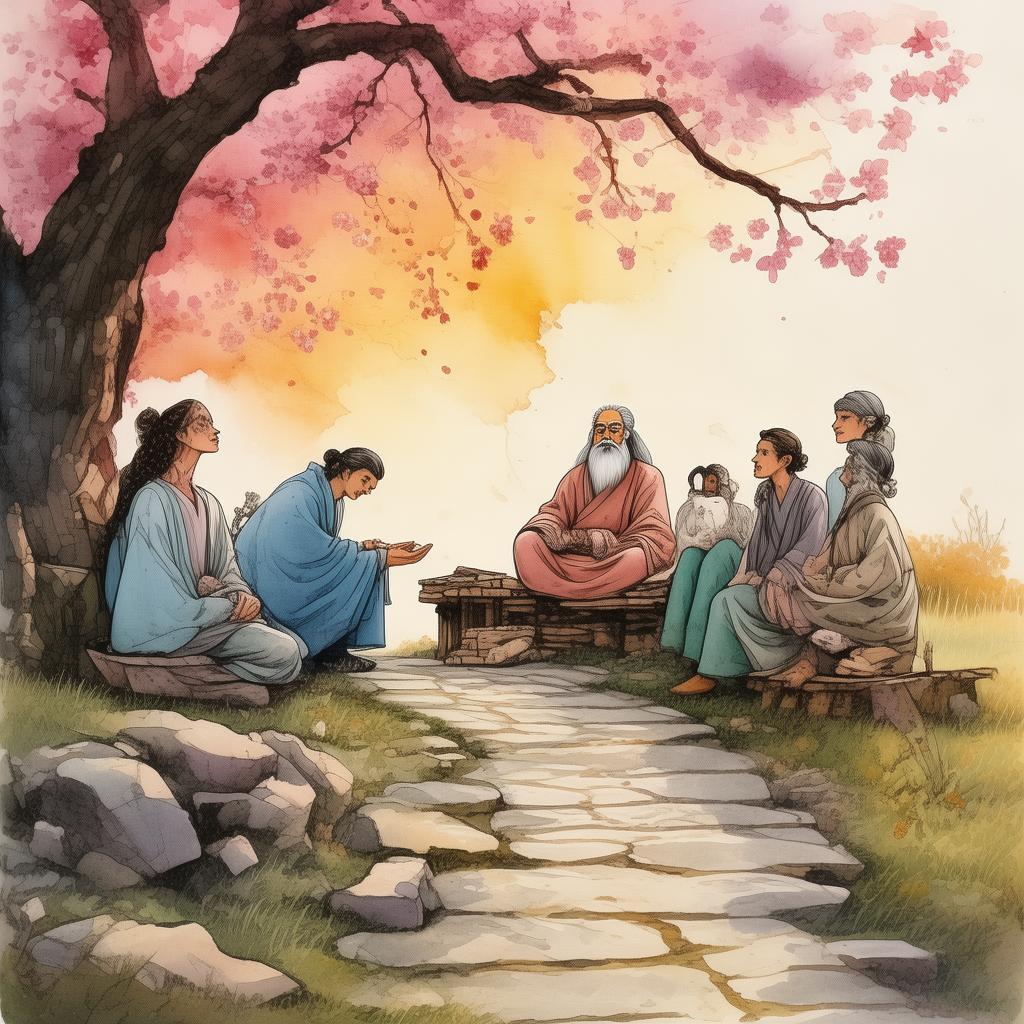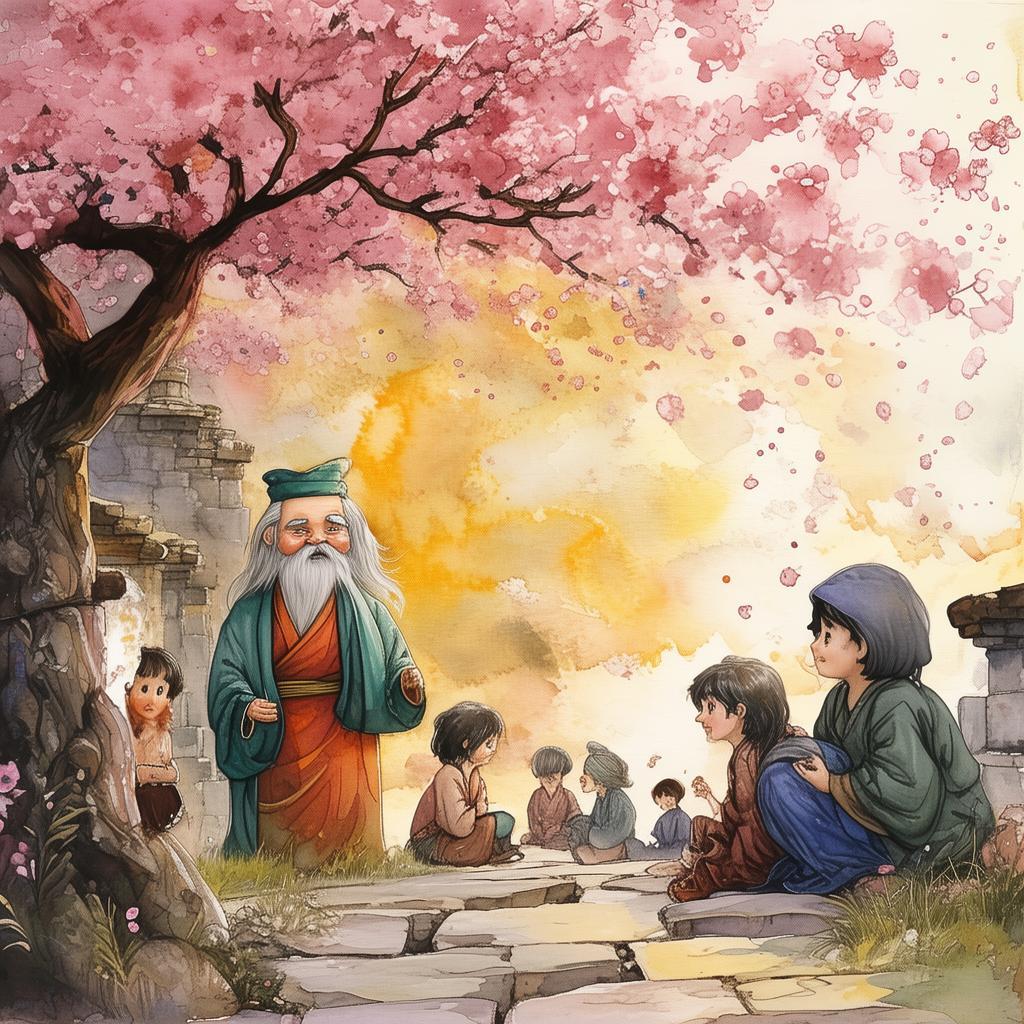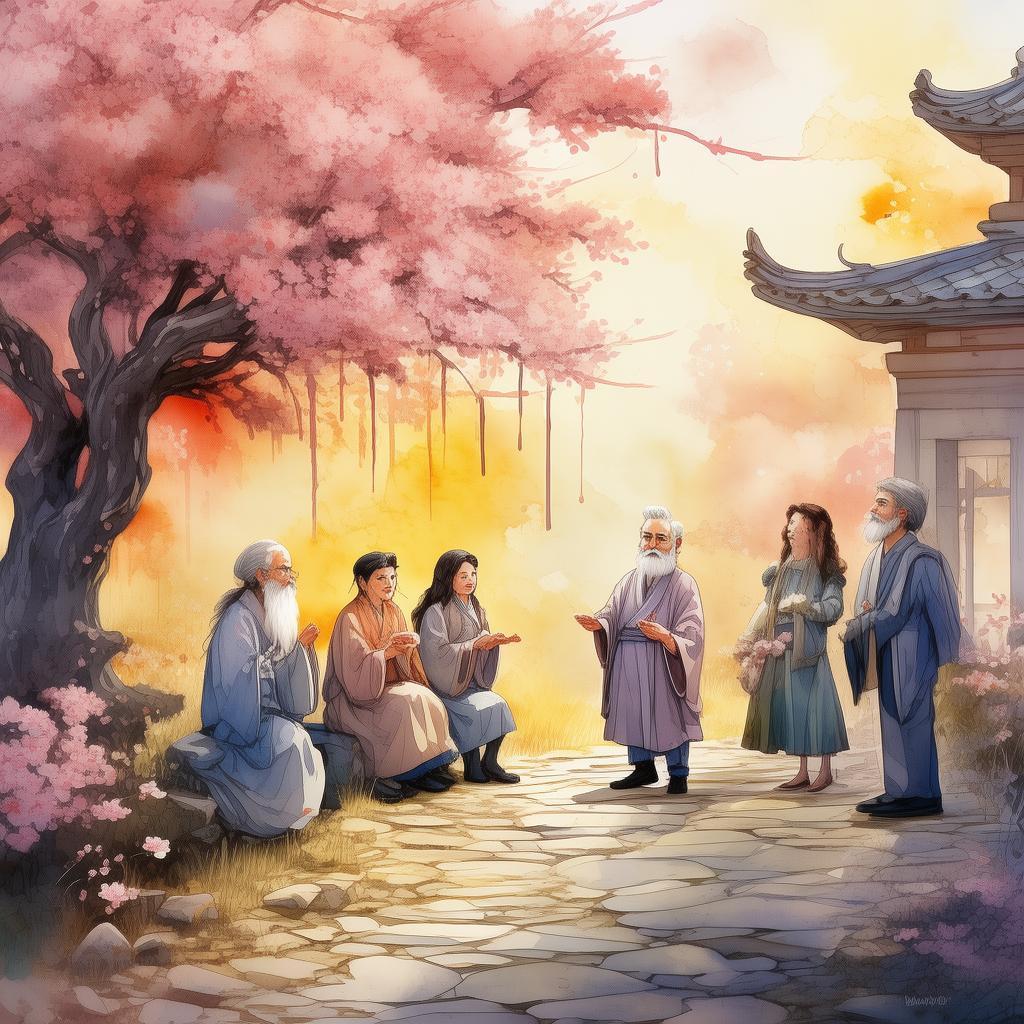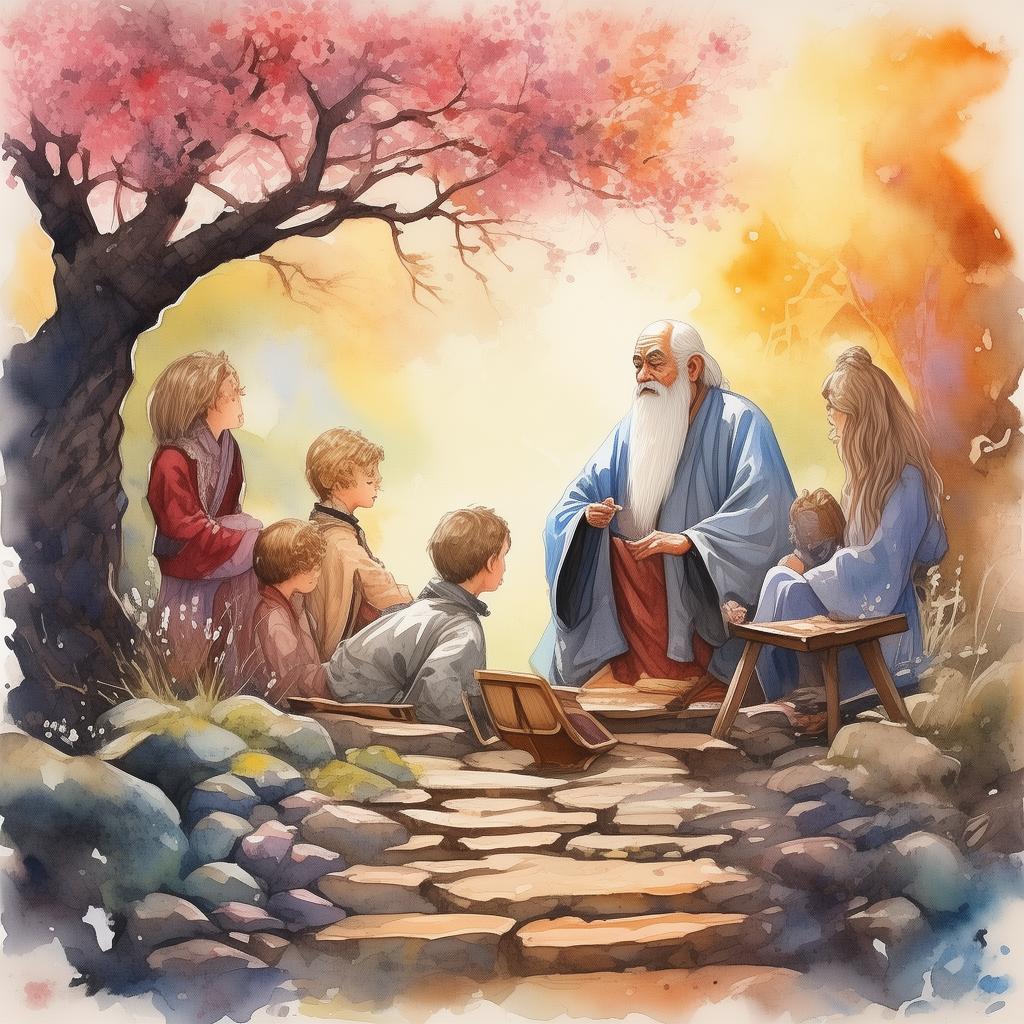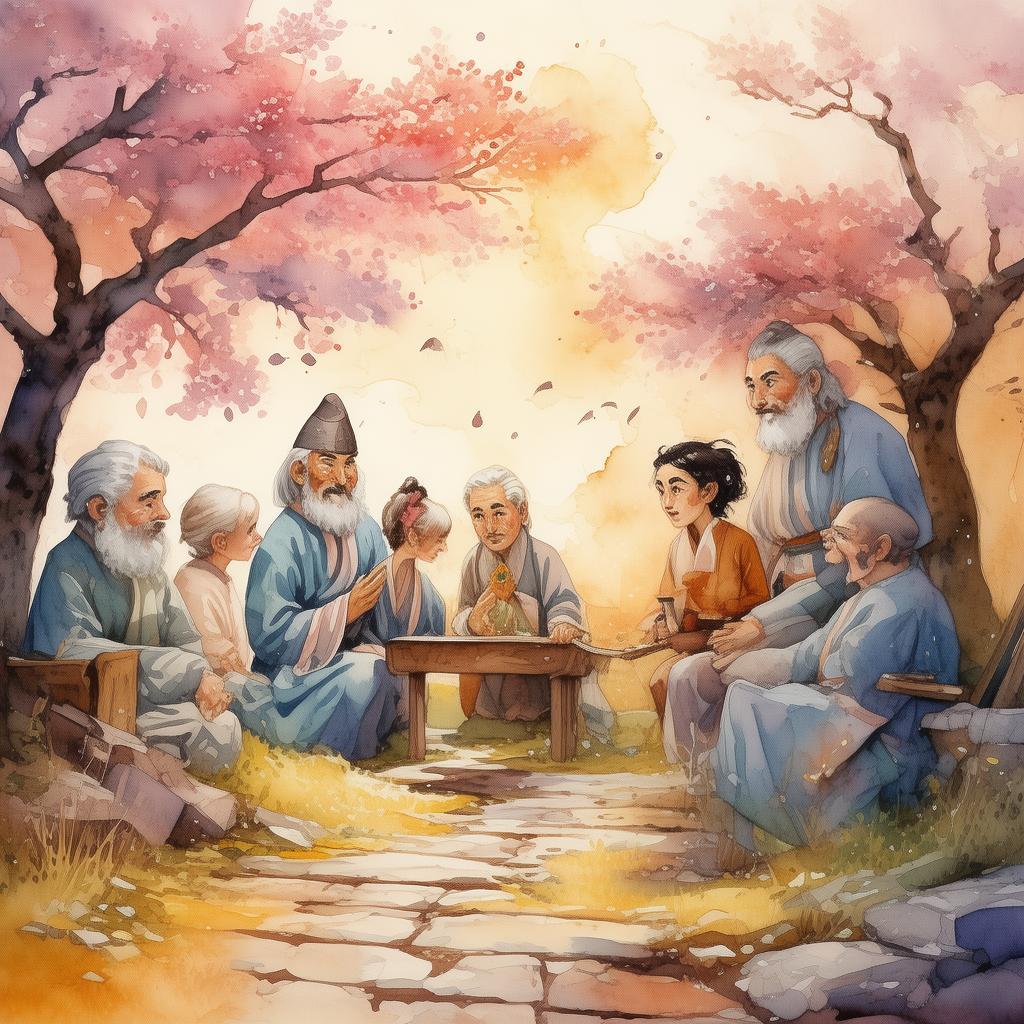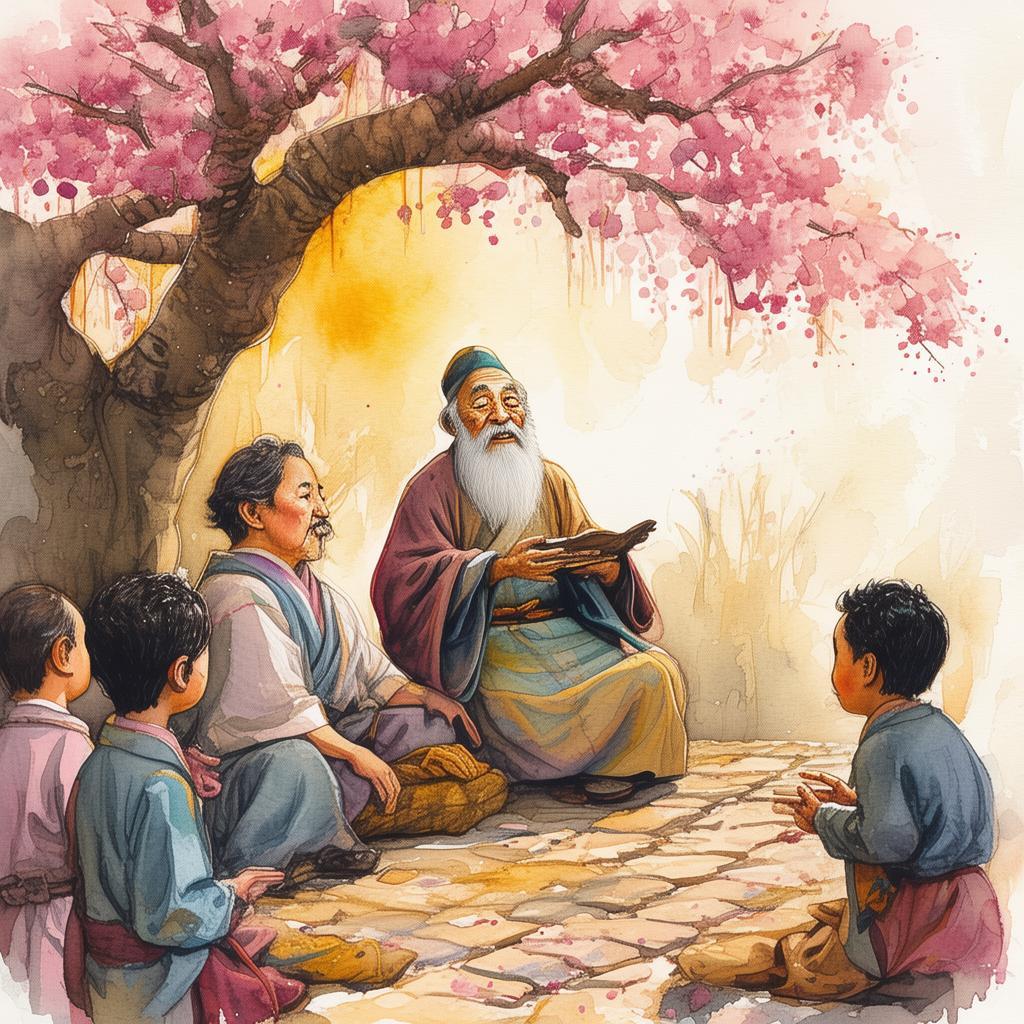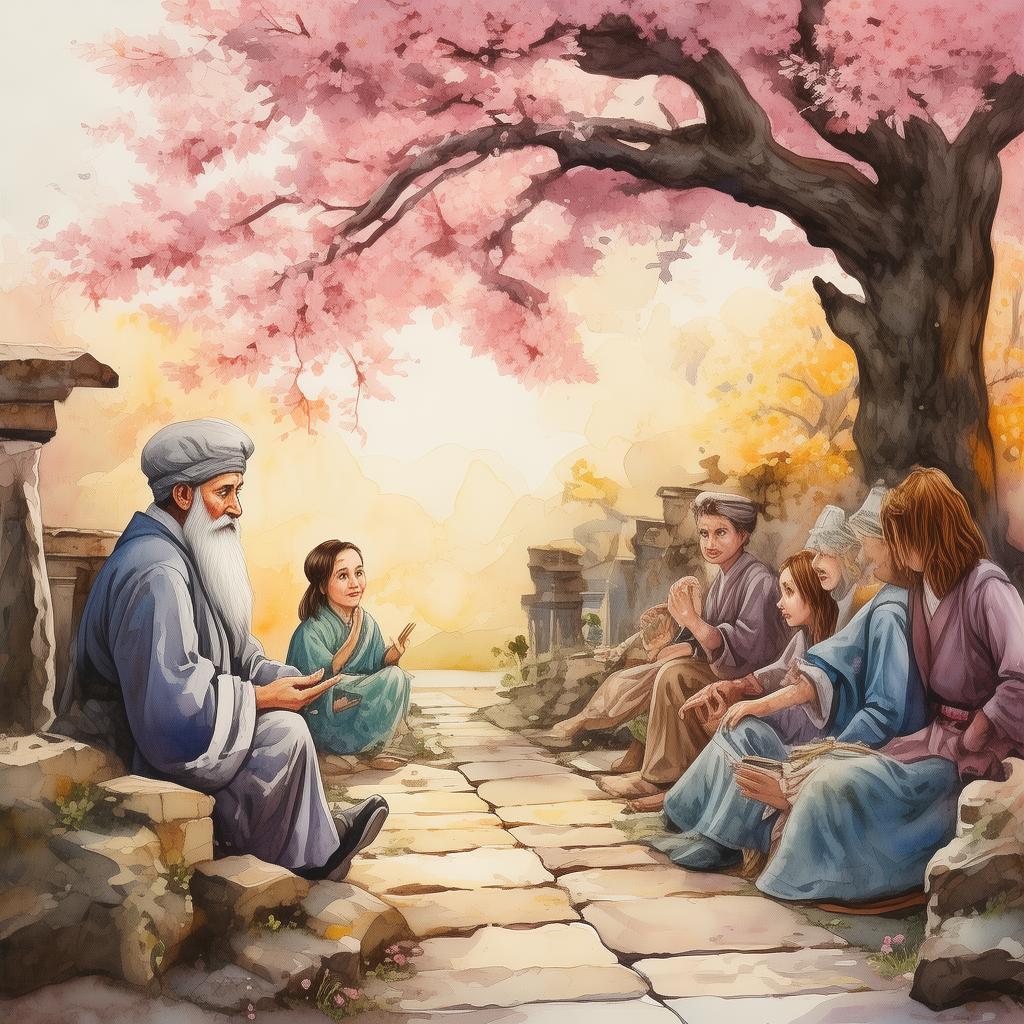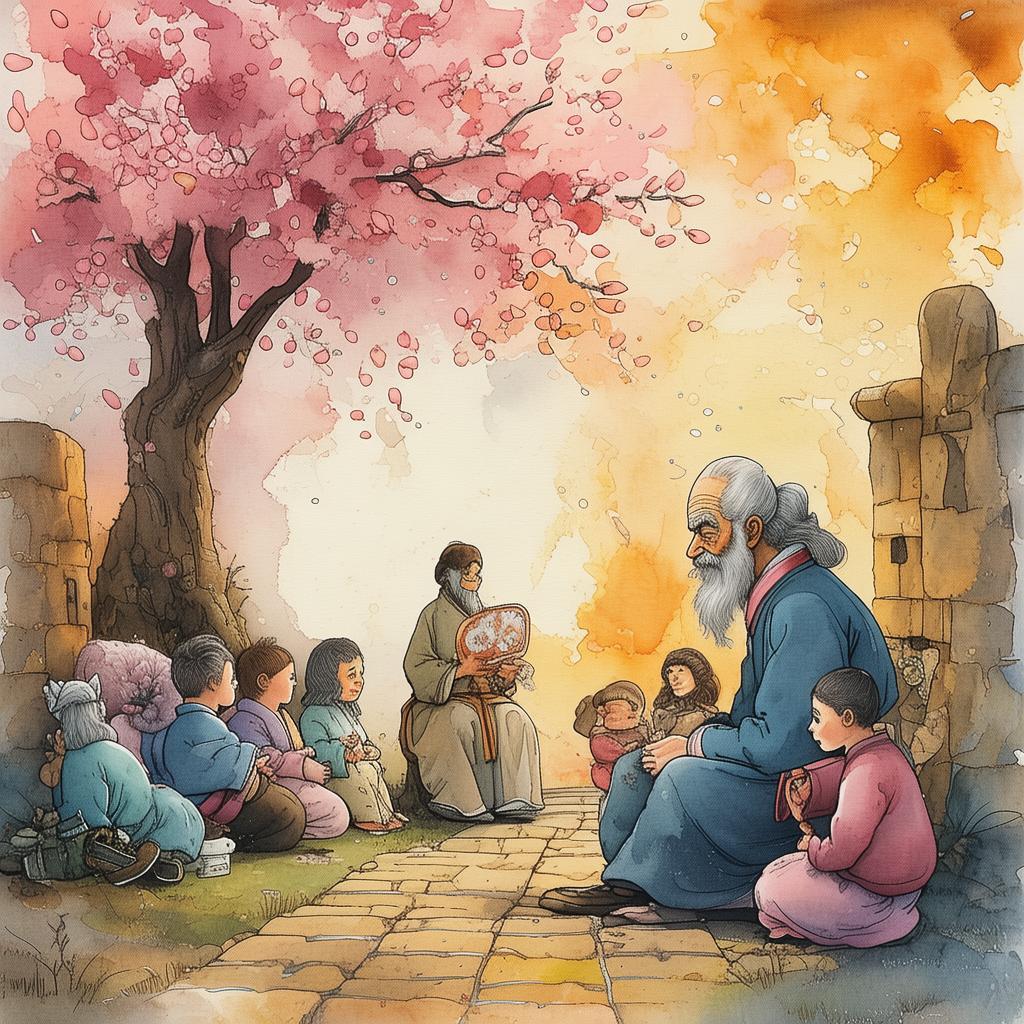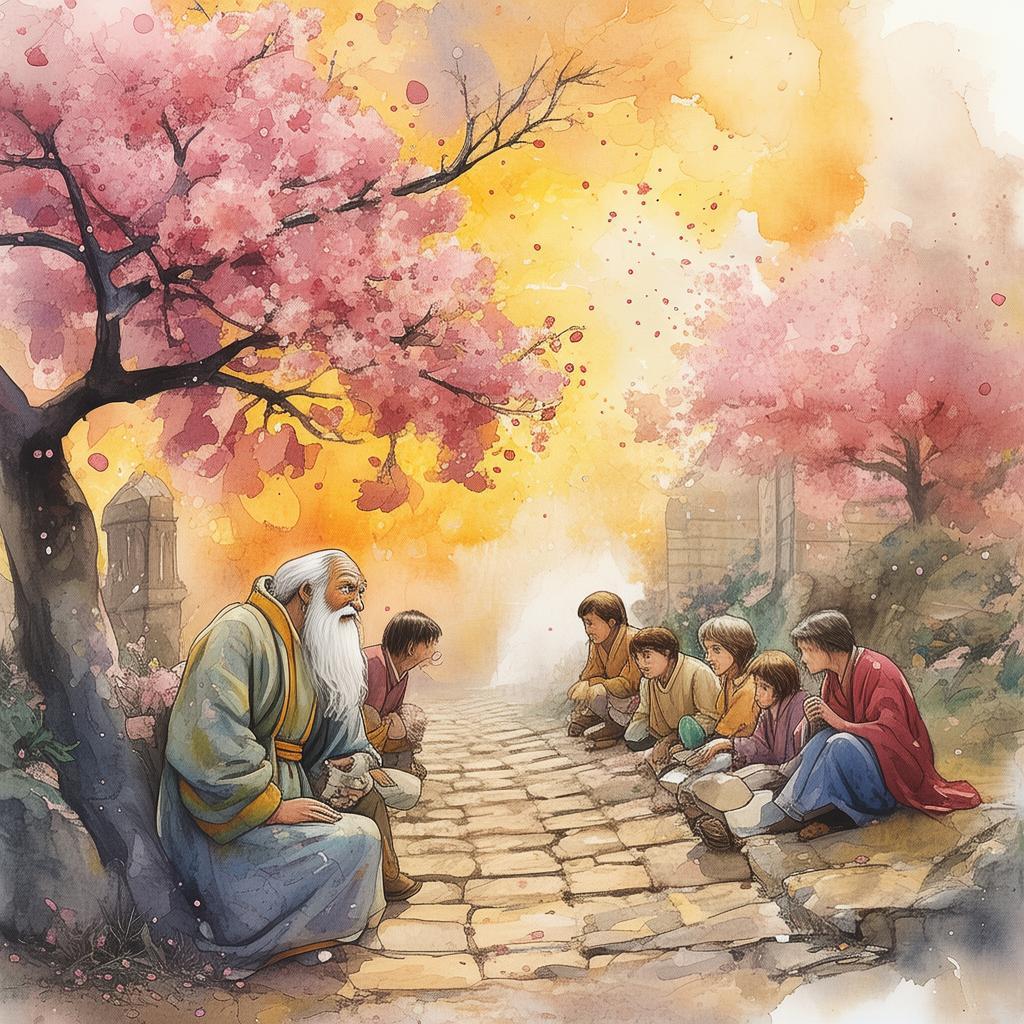The Whispering Tombs: A Library of Echoes
In the heart of a mystical mountain range, nestled within the ancient ruins of an forgotten civilization, lay a library known only in whispered tales. It was said that within this library, the words on the pages could not only be read but also heard, each letter resonating with ancient wisdom and forgotten secrets.
Liu Qing, a young and ambitious scholar, had always been fascinated by the rich tapestry of Chinese idioms and their origins. His passion led him to seek out the legendary Library of Echoes, a place where the stories behind these idioms were said to be written in the very air.
One moonlit night, Liu Qing followed a map he had found in an old, tattered book, leading him to the hidden entrance of the library. The ancient doors creaked open with a sound that seemed to echo through the ages, revealing a vast chamber filled with towering shelves of ancient scrolls.
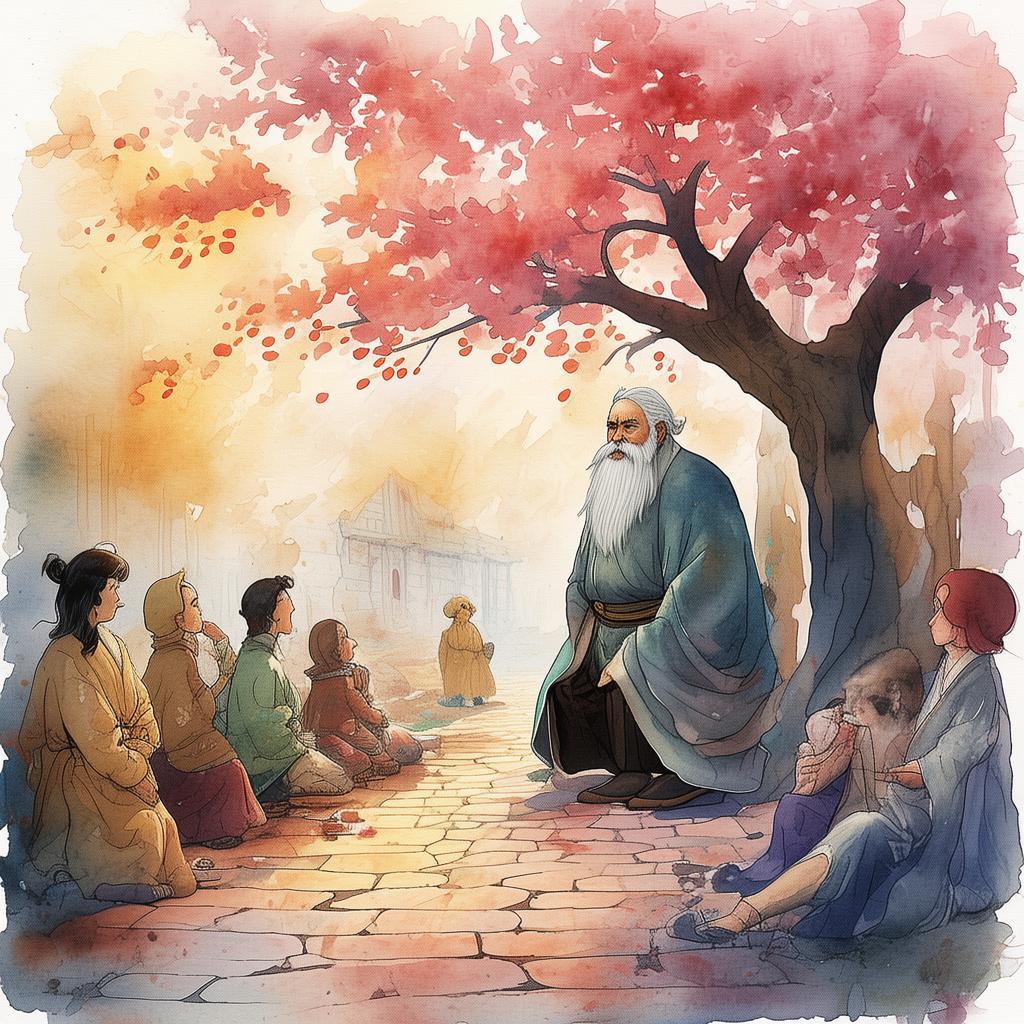
As Liu Qing stepped inside, he was greeted by a cacophony of voices, each one speaking a different dialect and each one echoing the idioms he had studied. The library was a place where the words were alive, and they called out to him.
One voice in particular caught his attention, a deep, resonant tone that seemed to carry the weight of centuries. It was the voice of the oldest scroll, a scroll that contained the idiom “The Whispering Tombs.”
“The Whispering Tombs,” the voice said, “is a tale of ancient magic and forgotten power. It speaks of a time when the words were alive, and the spoken word could shape the world itself.”
Intrigued, Liu Qing approached the scroll, his fingers tracing the ancient script. As he did so, the words began to glow, and a story unfolded before his eyes.
The story spoke of a kingdom long fallen, where the ruler, King Jing, sought to control the very essence of language itself. He built the Whispering Tombs, a place where the dead were buried with their voices preserved in the tombs, believing that by controlling the words, he could control the fate of his kingdom.
However, King Jing’s ambition led to his downfall. The tombs became a place of corruption, where the words spoken by the dead were twisted and used for dark purposes. The kingdom fell into chaos, and the Whispering Tombs were forgotten, their power sealed away.
But now, Liu Qing realized, the words were alive once more, and with them, the power of King Jing. If he were to uncover the secrets of the Whispering Tombs, he might be able to free the kingdom from its dark past and bring peace to the land.
Determined, Liu Qing set out on a quest to unravel the mystery of the Whispering Tombs. He traveled through desolate lands, crossed treacherous rivers, and faced trials that tested his wit and courage. Along the way, he encountered ancient guardians, each one a manifestation of an idiom he had studied, each one protecting the secrets of the library.
The final guardian, a towering figure made of stone and metal, spoke in riddles and demanded that Liu Qing prove his worth. Through a series of tests that required knowledge of the idioms and their meanings, Liu Qing demonstrated his mastery of the ancient language and his understanding of the power it held.
The guardian, satisfied, revealed the final secret: a hidden chamber within the library, where the true power of the Whispering Tombs lay. Liu Qing entered the chamber, where he found a pedestal with a single scroll remaining.
He unrolled the scroll, and the words began to glow once more, this time with a light that seemed to fill the entire room. The scroll revealed the ultimate power of the idioms: the ability to change the very fabric of reality.
With this power, Liu Qing returned to the kingdom, where he used the idioms to restore order and bring peace. The Whispering Tombs were sealed away once more, their power contained, and the kingdom flourished.
Liu Qing’s journey became a legend, and the Library of Echoes remained a place of mystery and wonder, where the words continued to whisper the ancient stories of the past.
In the end, Liu Qing learned that the true power of the idioms was not in their ability to shape the world, but in their ability to shape the heart and mind. Through understanding and wisdom, one could overcome any challenge, just as the idioms had done for generations.
The Library of Echoes remained a testament to the power of words, a place where the stories of the past continued to echo, reminding all who entered that the spoken word was a force to be reckoned with, and that the wisdom of the ancestors was a gift to be cherished.
✨ Original Statement ✨
All articles published on this website (including but not limited to text, images, videos, and other content) are original or authorized for reposting and are protected by relevant laws. Without the explicit written permission of this website, no individual or organization may copy, modify, repost, or use the content for commercial purposes.
If you need to quote or cooperate, please contact this site for authorization. We reserve the right to pursue legal responsibility for any unauthorized use.
Hereby declared.
